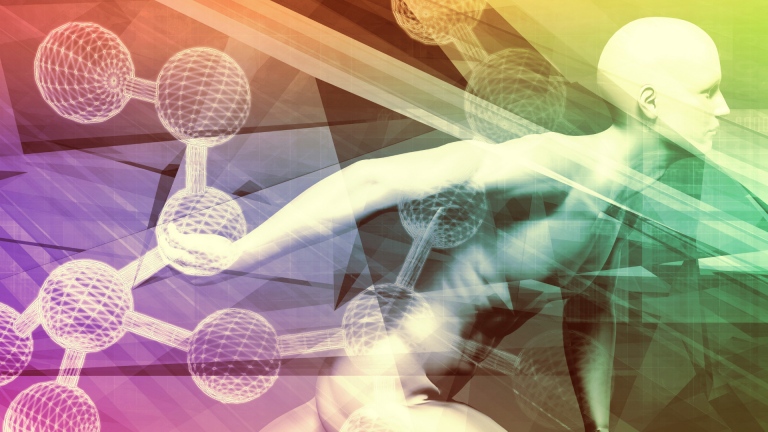Testosterone is the male sex hormone in charge of not only male characteristics but also health in general. While it is the dominant hormone in males, it also benefits women. Low testosterone is also referred to as low T or testosterone deficiency. The testosterone levels in men might deplete because of various reasons, but regardless of the reason for its decline, the low levels in the body might have severe implications for the body. To that end, testosterone replacement therapy(TRT) is done to counter low-T.
What is TRT
Testosterone Replacement Therapy (TRT) is a treatment used for managing low testosterone levels in men. It is also known as Androgen Replacement Therapy and is only recommended after hypogonadism diagnosis. The hormone is administered through different methods, including oral medications, topical creams & gels, intermuscular injections, and transdermal patches.
You might experience some of the symptoms that are a sign of testosterone deficiency, but it might not indicate that you suffer from it.

Is it For Me?
You might have all Low-T symptoms, from those affecting the mind, sexual function, and body, requiring you to get TRT treatment. While this does not mean that you have testosterone deficiency, it could be a reason for the symptoms. That said, below are some of the common symptoms of Low-T.
Increased Body Fat
When the testosterone levels in men drop, they start developing body fat. If the estrogen levels exceed the testosterone levels, they might build gynecomastia which also means enlarged breast tissues.
Strenuous Erections
Testosterone is referred to as the male hormone, and a decline might affect erections. When testosterone is sufficient in the body, it stimulates nitric oxide secretion in the brain, which eventually causes erections. Testosterone has also been linked with managing erectile dysfunction as well as improving the overall sex drive.
Hair Loss
Men naturally lose their hair as they age, but hair loss is also associated with testosterone deficiency. And apart from balding, you might also experience hair loss on the face and other body parts.
Decreased Bone Mass
Low testosterone levels in the body might cause a condition known as osteoporosis, which is the thinning of bones. This condition is usually shared among women, but when older men experience low T, the bone volume decreases, which increases the risk of bone fractures.
Fatigue
Extreme fatigue and low energy levels indicate low T. You may be less motivated to do simple tasks or even work out. This is because the mood is affected when the energy levels drop or when I feel bothered when you are tired.
You might be experiencing all or any of the low-T symptoms, but are you sure you need TRT treatment?
Why TRT Might Be Good For You
One of the sure ways to know if TRT is suitable for you or not is through bloodwork. This helps evaluate the total testosterone levels in the body before you are treated. So it boils down to assessing your current red blood cell count and testosterone levels before determining the proper testosterone replacement therapy treatment.
Patients are sometimes treated depending on the range they fall on. This might be inaccurate, and you might fall higher or lower than that range or even have normal testosterone levels.
Since you might need to get the treatment indefinitely, it is crucial to understand what you are getting into, so make sure to go through the whole process first with your provider. You might be falsely diagnosed with Low-T and put under a treatment plan you don’t need.
Also, while most men end up getting TRT for the rest of their lives, this might be optional. Some health conditions might limit lifetime TRT treatment, depending on your health and specific needs.
Why TRT Might Not Be Good For You
You might not need to get testosterone replacement therapy if you have some health conditions like breast and prostate cancer. However, if you have completed treatment for prostate cancer, it is possible to undergo TRT. Other health conditions that might prevent you from getting TRT include an incredibly high red blood cell count, obstructive sleep apnea, severe congestive heart failure, and severe lower urinary tract symptoms.
How to Get TRT
There are a lot of over-the-counter testosterone treatment methods, and while these are easily accessible, they are not specific to every individual in need. Such treatments may not be the best since different Low-T systems are not necessarily attributed to testosterone deficiency. The best way to get testosterone replacement therapy is from your doctor or an anti-aging clinic. There are pros and cons to both sides when you choose either of the two options, but the process of getting TRT is similar.
The Process of Getting TRT
Once you decide to undergo TRT, you need to understand that there are a few steps you will need to go through before taking treatment. From the initial stages of consulting with your doctor to finally getting your treatment plan, the following are the steps of getting TRT.
Consult
What are your symptoms? What is your current health? Do you need the treatment? How are you supposed to prepare? These and more are some of the questions that will be answered during the first stage of TRT. You will also be able to learn more about how the treatment works and what it entails.
Medical Exam
A medical exam will be conducted before any treatment or blood tests. This step is to ascertain your current health before carrying out any difficulties or preparing a treatment plan. Depending on the need for the treatment, a complete medical exam and an additional medical questionnaire might be conducted.
Blood Work
Every patient has different TRT needs, so extensive bloodwork is carried out beforehand to pin down what your deficiencies are in order to customize your treatment plan. Prostate-specific antigen(PSA) and red blood cell levels are tested before treatment. TRT might cause an increase in red blood cells at an alarming rate, which is why this stage is essential.
The bloodwork is done to estimate the testosterone levels in the body. The recommended time for performing a total testosterone test is in the morning when the testosterone levels are highest in men.
Follow Up
Following up with your doctor will be important in case there is a need to make any adjustments. The testosterone levels will also change after the treatment starts, so it is essential to check the levels frequently.
Treatment Plan
After all tests and health assessments, your doctor will create a tailored treatment plan just for you.
Benefits of TRT
While a lot of aging men struggle with low T, which significantly affects their lifestyle, the potential of testosterone replacement therapy for men is unrivaled. TRT benefits for men are manifold, and some of them are highlighted below.
Mental Ability and Memory Improvement
When it comes to improving memory, focus, and mental ability, TRT does a great job. The cognitive ability starts to dwindle as a man ages, especially from middle age. The older you get, the more information slips your mind, while grasping and processing new information becomes difficult. You start having problems making up your mind and essential decisions as testosterone levels reduce in the body.
Undertaking testosterone replacement therapy helps restore cognitive ability, sharpen memory, and enhance your problem-solving ability and focus. In the long run, TRT helps with mental agility, which overall impacts how you perform your duties daily.
Increases Energy
Testosterone replacement therapy can also impact energy levels in the body. A 25-year-old man is more energetic than a 50-year-old man, which is linked to low testosterone levels in the body. Even with other possible reasons, sluggishness and tiredness at an older age might be a result of Low-T, even though it does not directly affect the energy levels in the body.
TRT increases energy by improving insulin sensitivity, which plays a significant role in fat loss. By boosting the number of red blood cells in the body, TRT helps increase physical stamina, increasing motivation during exercise. Also, the relationship between testosterone and energy increase might not be directly linked but through the other benefits of TRT.
Improves Sleep
Since TRT has a general effect on cognitive ability, this helps to improve sleep.
While the amount of sleep does not affect the testosterone levels in the body, low T is associated with insomnia and sleep disturbances. Low testosterone levels may also result in the different effects of depression. This makes you distracted, unsettled, and more agitated, affecting your sleep at night. So, testosterone deficiency does not directly affect sleep patterns but rather causes symptoms linked to depression which in turn affects sleep.
The testosterone levels in the body often affect the synchronization that your brain requires to initiate deep sleep. So, getting TRT helps boost this synchronization, boosting deeper and restful sleep.
Boosts Heart Health
Numerous studies have shown that older men with Low-T have a higher risk of heart disease when compared to younger ones with higher testosterone. While there are concerns about TRT being one of the causes of heart diseases, testosterone can help enhance cholesterol and markers of triglycerides. Low testosterone levels are linked to higher risks of cardiovascular diseases and heart attacks.
Increased visceral fat, usually found around the midriff area, is harmful to health, but it can be reduced through TRT. Excess visceral fat increases the risk of heart disease and colon cancer, Alzheimer’s disease, and type 2 diabetes.
Reduces Fat Mass
In one way or another, testosterone plays a role in maintaining metabolism. A drop in testosterone levels in men might lead to a fat increase in the body, which is why many men with low T are, in most instances, overweight. Fat stored in the belly carries aromatase, enzymes that produce estrogen by breaking down the testosterone in the body.
Due to low T, the body cannot evenly distribute fat. Many people who suffer from low-T struggle with dieting. Hence, TRT treatment allows men to benefit through an even fat distribution throughout the body and managing dieting.
Increases Libido
Low-T is a well-known culprit for libido and erectile dysfunction in middle-aged and older men. Frequently, erectile dysfunction is linked to depression, obesity, poor heart health, and lack of confidence, all symptoms of Low-T. A TRT patient will probably beat erectile dysfunction since they experience muscle gain, confidence boost, weight loss, more happiness, and better cardiovascular function after the treatment.
The secretion of gonadotropin-releasing hormones (GnRH) is done in the brain, in return sending signals to the testicles for the production of testosterone. So, TRT is not responsible for sperm production but rather helps coordinate movements from the brain to the testicles.
Improved Muscle Mass
TRT works incredibly to increase muscle mass but should not be used to replace healthy workout routines completely. Instead, it should be used to supplement it for better results. As testosterone declines as one ages, this slows down metabolism, increasing fat storage, especially visceral fat. Hence, testosterone is vital for building muscle mass through activating protein synthesis.
Bottom Line
Testosterone replacement therapy is not the fountain of youth as most people perceive it. As the market widens, there is a flooding of different information about what it does and doesn’t do.
Starting the treatment might only work after a period of time, and it is also essential to understand that the process works differently for each patient. Regardless of your age or the symptoms you are experiencing, a good provider should be able to create a workable treatment plan for you.
**NOTE** The content in this blog is subject to interpretation and is the opinion of the content writer. We do not claim it to be fact. We encourage you to consult a medical doctor before taking any prescribed medications or supplements.
Conclusion
Supporting Hormones health is essential for overall well-being and vitality. By incorporating regular exercise, proper nutrition, adequate sleep, stress management techniques, and IV therapy, you can help maintain optimal testosterone levels and lead a healthy, balanced life. Always consult a healthcare professional before making significant changes to your lifestyle or starting any new treatments to ensure they suit your needs.
At AAI Rejuvenation Clinic, we advise anyone to think seriously about beginning Hormone treatment if there is no medical need for it. However, we will take every precaution to ensure that you read your program’s positive benefits by providing the latest at-home hormonal mouth-swab testing to ensure we are continually monitoring your progress and aware of any adverse side effects. Fill out the Medical History Form, or if you need more information, call us at (866) 224-5698 or (866) AAI-Low-T.
Low Hormone Symptoms
- Motivation
- Sex Drive and Desire
- Depression
- Fatigue
- Erectile Dysfunction
- Cholesterol
- Low Energy
- Memory Loss
- Osteoporosis
- Wounds & Illness
- Muscle Mass
- Sleep Disturbances
- Thyroid Dysfunction
- Weight Gain

]]>



